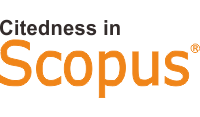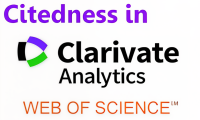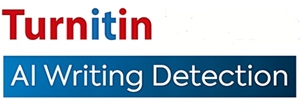Accelerating Halal Certification: Al-Siyasah Shar’iyyah Analysis of Local Government Strategies and Systemic Challenges for Madura’s MSMEs
DOI:
https://doi.org/10.46870/milkiyah.v4i2.1507Keywords:
Halal Certification, Local Government, MSMEs, Siyasah Shar’iyyahAbstract
Indonesia’s mandatory halal certification deadline of 17 October 2026 poses a pressing challenge for Micro, Small, and Medium Enterprises (MSMEs) for Sharia-compliant legal assurance to maintain consumer trust and enhance market competitiveness. This study examines the strategic role of local governments in accelerating halal certification for MSMEs using Siyasah Shar’iyyah approach with the principle of Tasharruf al-imām ‘alā al-Ra‘iyyah manūṭun bi al-Maṣlaḥah. This study used interviews and policy analysis for qualitative analysis. The qualitative multi-case approach examines halal certification acceleration across Madura's four regencies (Bangkalan, Sampang, Pamekasan, and Sumenep) through interviews with key stakeholders, participatory observation, and policy document analysis. The findings demonstrate that local governments are proactively advancing halal certification through targeted approaches. These include deploying Islamic religious counsellors, participating in national certification initiatives, and providing free certification programs to facilitate MSME compliance with halal requirements. Despite proactive efforts, the study identifies three persistent challenges hindering halal certification acceleration, including fragmented coordination between implementing institutions, unequal progress across regions, and insufficient local testing infrastructure, particularly for meat and animal-derived products. To address these systemic barriers, the study proposes mobile halal laboratories to expand testing coverage, digital platforms for accessibility, and Islamic boarding schools for continuous training. The findings bridge critical theory and practice, offering scalable approaches to enhance regulatory compliance and equitable halal certification access for MSMEs.
References
Abdussamad, Z. (2021). Metode Penelitian Kualitatif. Makasar: Syakir Media Press.
Adminpkh. (2022). ITS mengHalalkan UMKM Sumenep. ITS News. https://www.its.ac.id/psh/id/2022/12/26/its-mengHalalkan-umkm-sumenep/
Ahyani, H., Mahfud, M., Waluyo, R., Ulya, W., & Muharir, M. (2020). The Potential of Halal Food as A Driver of the Economic Development in Regional Community. Jurnal Pariwisata Terapan, 4(2), 163–182. https://doi.org/10.22146/jpt.63771
Ali, M. N. (2023). Optimalisasi Pendampingan Proses Sertifikasi Halal Umk Di Cirebon. Inklusif (Jurnal Pengkajian Penelitian Ekonomi Dan Hukum Islam), 8(1), 1-17. https://doi.org/10.24235/inklusif.v8i1.14195
Aliyudin, Abror, K., Khairuddin, & Hilabi, A. (2022). Sertifikasi Halal di MUI Lampung Pasca Undang-Undang Nomor 34 Tahun 2014 Serta Problematika UMKM. Al Maal: Journal of Islamic Economics and Banking, 3(2), 194–212. http://dx.doi.org/10.31000/almaal.v3i2.5459
ANTARA. (2025). Kemenag Bangkalan Beri Fasilitas UMKM Urus Sertifikat Halal. https://jatim.antaranews.com/berita/842373/kemenag-bangkalan-beri-fasilitasi-umkm-urus-sertifikat-Halal
Annabi, C. A., & Ibidapo-Obe, O. O. (2017). Halal Certification Organizations in The United Kingdom: An Exploration of Halal Cosmetic Certification. Journal of Islamic Marketing, 8(1), 107–126. https://doi.org/10.1108/JIMA-06-2015-0045
Anugerah, F. N., & Nuraini, I. (2021). Peran UMKM dalam Menanggulangi Kemiskinan di Provinsi Jawa Timur. Jurnal Ilmu Ekonomi (JIE), 5(1), 27–41. http://dx.doi.org/10.22219/jie.v5i1.13772
Aprilia, S., & Priantina, A. (2022). Analisa Strategi Peningkatan Sertifikasi Halal Sektor Kuliner Di Bangka Selatan. International Journal Mathla’ul Anwar of Halal Issues, 2(1), 50–71. https://doi.org/10.30653/ijma.202221.46
Ariska, N., Setiawan, R. A., Setiawan, A., & Zaki, K. (2023). Implementasi Proses Sertifikasi Halal Self Declare dalam Mendukung Pertumbuhan UMKM. Jurnal Pembelajaran Pemberdayaan Masyarakat (JP2M), 4(4), 807–815. https://doi.org/10.33474/jp2m.v4i4.21335
Destriyansah, W., Imsar, I., & Harahap, M. I. (2023). Analysis of the Influence of the Halal Industry on Indonesia’s Economic Growth. Wiga: Jurnal Penelitian Ilmu Ekonomi, 13(2), 232–245. https://doi.org/10.30741/wiga.v13i2.1117
Dube, F. N., Haijun, Y., & Lijun, H. (2016). Halal Certification System as Key Determinant of Firm Internationalisation in The Philippines and Malaysia. Asian Academy of Management Journal, 21(1), 73–88. https://ejournal.usm.my/aamj/article/view/aamj_vol21-no-1-2016_4
Emzir. (2012). Metodologi Penelitian Kualitatif: Analisis Data. Jakarta: PT. RajaGrafindo Persada.
Faika, N.S., & Ilyas, M. (2021). Kewajiban Pendaftaran Sertifikasi Halal Pada Badan Penyelenggara Jaminan Produk Halal: Perspektif Maqāṣid al-Syarī’ah. Shautuna: Jurnal Ilmiah Mahasiswa Perbandingan Mazhab, 2(2), 449–462. https://doi.org/10.24252/shautuna.v2i2.18842
Faridah, H. D. (2019). Sertifikasi Halal di Indonesia: Sejarah, Perkembangan dan Implementasi. Journal of Halal Product and Research, 2(2), 68–78. https://doi.org/10.20473/jhpr.vol.2-issue.2.68-78
Fausi, A., & Mubarok, J. (2023). Fikih Pemimpin dan Pernikahan Beda Agama: Kontekstualisasi Kaidah Tasarruf al-Imam ’ala al- Ra’iyyah Manuṭun bi al-Maslahah. Komparatif: Jurnal Perbandingan Hukum dan Pemikiran Islam, 3(2), 113–131. https://doi.org/10.15642/komparatif.v3i2.2003
Gunawan, S., Juwari, J., Aparamarta, H.W., Darmawan, R., & Rakhmawati, N. A. (2021). Pendampingan Berkelanjutan Sistem Jaminan Halal Bagi Usaha Mikro, Kecil, dan Menengah (UMKM). Sewagati, 5(1), 8-14. https://doi.org/10.12962/j26139960.v5i1.8120
Hartini, & Malahayatie. (2024). Implikasi Sertifikat Halal dalam Manejemen Bisnis Industri Makanan dan Minuman. Great: Jurnal Manajemen dan Bisnis Islam, 1(2), 116–129. https://doi.org/10.55799/tawazun.v11i02.322
Hidayatullah, M. S. (2020). Sertifikasi dan Labelisasi Halal Pada Makanan dalam Perspektif Hukum Islam (Perspektif Ayat Ahkam). Yudisia: Jurnal Pemikiran Hukum dan Hukum Islam, 11(2), 251-269. https://doi.org/10.21043/yudisia.v11i2.8620
Hilme, S. I., & Raffi, R. M. (2024). Maqasid Approach and Shariah Rules Towards Halal Industry Maqasid Approach and Shariah Rules Towards Halal Industry. Journal of Halal Science, Industry, and Business, 2(2), 1–14. https://doi.org/10.31098/jhasib.v2i2.2691
Idrus, A. M. (2021). Kebijakan Pemimpin Negara dalam Perspektif Kaidah Fikih: Tasarruf Al-Imam Manutun Bil Maslahah. Al Daulah: Jurnal Hukum Pidana dan Ketatanegaraan, 1(1), 123–137. https://doi.org/10.24252/ad.v1i1.26278
Indika, M., & Marliza, Y. (2019). Upaya Pemberdayaan Usaha Mikro Kecil Menengah (UMKM) Dalam Mengatasi Kemiskinan di Kecamatan Tugumulyo Kabupaten Musi Rawas. MBIA, 18(3), 49–66. https://doi.org/10.33557/mbia.v18i3.598
Isa, R. M., Man, S., Rahman, N. N. A., & Aziz, A. (2023). Determinants of Consumer Adoption of Halal Cosmetics A systematic Literaturee Review. Journal of Cosmetic Dermatology, 22(3), 752–762. https://doi.org/10.1111/jocd.15486
Jakiyudin, A. H., & Fedro, A. (2022). Sehati: Peluang dan Tantangan Pemberian Sertifikasi Halal Gratis Bagi Pelaku UMK di Indonesia. Al-Mustashfa: Jurnal Penelitian Hukum Ekonomi Islam, 7(2), 182–194. http://dx.doi.org/10.24235/jm.v7i2.10666
Kusumastuti, A., & Khoiron, A. M. (2019). Metode Penelitian Kualitatif. Semarang: Lembaga Pendidikan Sukarno Pressindo (LPSP).
Hayya, A. F., Larasati, A., Az-Zakkiy, H., Seme, B. P., Raja Haekal Jarot, & Hananto, D. (2023). Kajian Literatur: Dampak Sertifikasi Halal untuk Meningkatkan Daya Saing UMKM di Indonesia. Philosophiamundi: Journal Of Global Humanistic Studies, 3(1), 1–6. https://philosophiamundi.id/index.php/philosophia/article/view/23
Maksum, M. (2024). Urgensi Sertifikasi Produk Halal Perspektif Maqasid Al-Syariah Al-Ghazali. Al Mikraj: Jurnal Studi Islam dan humaniora, 5(1), 300–311. https://doi.org/10.37680/almikraj.v5i01.5651
Masitah, Puspita, E. A., & Wiriani, E. (2024). Analisis Hukum Ekonomi Syariah Terhadap Sertifikasi Halal Gratis melalui Mekanisme Self-Declare. Jurnal Ekonomi dan Manajemen Teknologi (EMT) KITA, 8(4), 1665–1688. https://doi.org/10.35870/emt.v8i4.3389
Mausufi, N., Hidayat, M., & Fitriani, F. (2023). Makanan Halal dan Thayyib Perspektif Mufassir Nusantara. Ahkam: Jurnal Hukum Islam dan Humaniora, 2(3), 509–526. https://doi.org/10.58578/ahkam.v2i3.1410
Monoarfa, H., Juliana, J., Setiawan, R., & Karim, R. A. (2023). The Influences of Islamic Retail Mix Approach on Purchase Decisions. Journal of Islamic Marketing, 14(1), 236–249. https://doi.org/https://doi.org/10.1108/JIMA-07-2020-0224
Mulyati, S., Abubakar, A., & Hadade, H. (2023). Makanan Halal dan Tayyib dalam Perspektif Al-Quran. ISIHUMOR: Jurnal Ilmu Sosial dan Humaniora, 1(1), 23–33. https://doi.org/10.58540/isihumor.v1i1.150
Mursadad, A., Sissah, & Budianto, A. (2024). Peran Sertifikasi Halal Terhadap Peningkatan Penjualan Pada UMKM Di Kecamatan Telanai Pura Jambi. 5(2), 3025–9496. https://doi.org/10.8734/musytari.v5i2.2958
Musadad, A., Rahman, T., Umami, R., & Sholeha, I. (2024). The Efforts of The Bangkalan Regency Government in Accelerating Halal Certification for MSMEs: Analysis of the Norm Escalation Theory-Islamic Good Governance. Ijtihad: Jurnal Hukum dan Ekonomi Islam, 18(1), 48–58. https://doi.org/10.21111/ijtihad.v18i1.11430
Mustaqim, D. Al. (2023). Sertifikasi Halal Sebagai Bentuk Perlindungan Konsumen Muslim: Analisis Maqashid Syariah dan Hukum Positif. AB-JOIEC: Al-Bahjah Journal of Islamic Economics, 1(2), 54–67. https://doi.org/10.61553/abjoiec.v1i2.64
Nasik, K. (2021). Membaca Tingkat Kesejahteraan Perajin Batik Kemitraan Umkm Di Tanjung Bumi Melalui Maqāṣ Id Al-Sharīʻah. Madinah : Jurnal Studi Islam, 8(1), 33–48. https://doi.org/10.58518/madinah.v8i1.1332
Pratama, H. (2022). Stakeholders Synergy in Accelering MSMEs (UMKM) Halal Certification Through Halal Self-Declare. Jurnal Ilmiah Mahasiswa Raushan Fikr, 11(2), 271–287. https://doi.org/10.24090/jimrf.v11i2.6054
Qomaro, G. W. (2018). Sertifikasi Halal Dalam Persepsi Konsumen Pada Produk Pangan di Kabupaten Bangkalan. Kabilah: Journal of Social Community, 3(2), 241–251. https://doi.org/10.35127/kbl.v3i2.3412
Rachmaniah, O., Rahmawati, Y., Nurkhamidah, S., Meka, W., & Fahmi. (2024). Pengajuan Sertifikasi Halal atas Pernyataan Pelaku Usaha Industri Roti dan Kue di Area Surabaya dan Mojokerto. Sewagati: Jurnal Pengabdian Kepada Masyarakat, 8(5), 2043–2056. http://dx.doi.org/10.12962/j26139960.v8i5.1097
Rofi’ah, K., Safira, M. E., & Rosele, M. I. (2024). The Effectiveness of Accelerating Halal Product Certification: Regulations and Companions. Journal of Human Rights, Culture and Legal System, 4(2), 449–476. https://doi.org/10.53955/jhcls.v4i2.203
Rusydiana, S.A., & Marlina, L. (2020). Analisis Sentimen terkait Sertifikasi Halal. JEBA (Journal of Economics and Business Aseanomics), 5(1), 69–85. https://doi.org/10.33476/j.e.b.a.v5i1.1405
Sarisae, S. (2023). the Need for Halal Certification of Medical Devices: a Case Study of Thailand. Journal of Halal Science and Technology, 2(1), 32–39. https://doi.org/10.59202/jhst.v2i1.664
Siregar, D. (2023). Penyuluhan dan Sosialiasi; Sertifikat Halal sebagai Upaya Perlindungan Konsumen dalam Memilih Makanan dan Minuman di Universitas Tjut Nyak Dhien Medan. Jurnal Solma, 12(3), 1012–1020. https://doi.org/10.22236/solma.v12i3.12673
Suparto, S., Djanuardi, Yuanitasari, D., & Suwandono, A. (2016). Harmonisasi dan Sinkronisasi Pengaturan Kelembagaan Sertifikasi Halal Terkait Perlindungan Konsumen Muslim Indonesia. Jurnal Mimbar Hukum, 28(3), 427–438. https://doi.org/10.22146/jmh.16674
Syafitri, M. N., Salsabila, R., & Latifah, F. N. (2022). Urgensi Sertifikasi Halal Food dalam Tinjauan Etika Bisnis Islam. Al Iqtishod: Jurnal Pemikiran dan Penelitian Ekonomi Islam, 10(1), 16–42. https://doi.org/10.37812/aliqtishod.v10i1.305
Syihabuddin, M., & Suwandi. (2024). Harmonization of Halal Certification in Indonesia with Maqashid Syariah Principles : an In-Depth Study of Jasser Auda’s System Approach. Tawazun: Journal of Sharia Economic Law, 7(1), 62–75. http://dx.doi.org/10.21043/tawazun.v7i1.27366
Syuhada, E. F. (2023). Pendekatan Maqasid Syariah dalam Meningkatkan Kepercayaan pada Sertifikasi Halal. At-Tawazun : Jurnal Ekonomi Syariah, 1(1), 21–28. https://doi.org/10.55799/tawazun.v11i02.332
Tahliani, H., & Renaldi, R. (2023). Sertifikasi Halal Dan Implikasinya Untuk Meningkatkan Daya Saing Perusahaan. Syar’ie : Jurnal Pemikiran Ekonomi Islam, 6(1), 1–12. https://doi.org/10.51476/syarie.v6i1.444
Widayat, Sulardjaka, Al-Baarri, A. N., & Nurjannah, R. (2020). Pendampingan Sertifikasi Halal Pada UMKM Hanum Food (Halal Certification Support in UMKM Hanum Food). Indonesian Journal of Halal, 3(1), 83–87. https://doi.org/10.14710/Halal.v3i1.9189
Widyaningsih, D. A. (2023). Sertifikasi Halal Perspektif Maqashid Syariah. Falah: Jurnal Hukum Ekonomi Syariah, 4(1), 61–72. http://dx.doi.org/10.55510/fjhes.v4i1.224
Winarto, & Santoso, H. B. (2024). Sertifikasi Halal Produk UMK dalam Meningkatkan Kepercayaan Konsumen. Harmoni Sosial: Jurnal Pengabdian dan Solidaritas Masyarakat, 1(4), 1–16. https://doi.org/10.62383/harmoni.v1i4.421
Yusuf, H.A., Shukor, S.A, & Bustamam, U.S.A. (2016). Halal Certification vs Business Growth of Food Industry in Malaysia. Journal of Economics, Business and Management, 4(3), 247–251. https://doi.org/10.7763/joebm.2016.v4.399
Downloads
Published
How to Cite
Issue
Section
License
Copyright (c) 2025 Ahmad Musadad, Taufiqur Rahman, Baihaqi Baihaqi, Mustaniroh Mustaniroh, Tri Pujiati

This work is licensed under a Creative Commons Attribution-ShareAlike 4.0 International License.

















